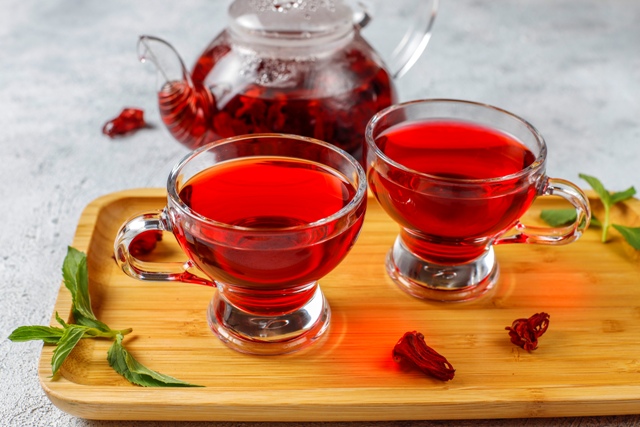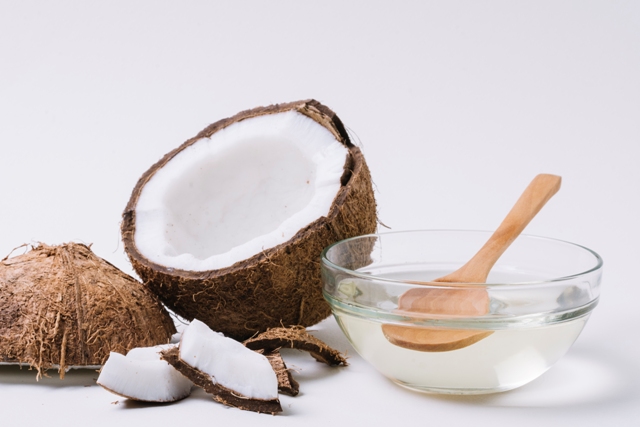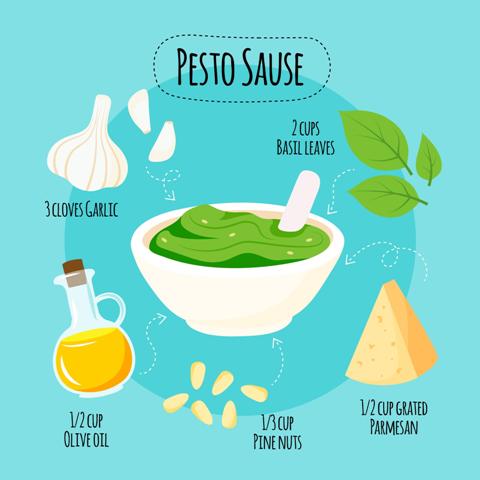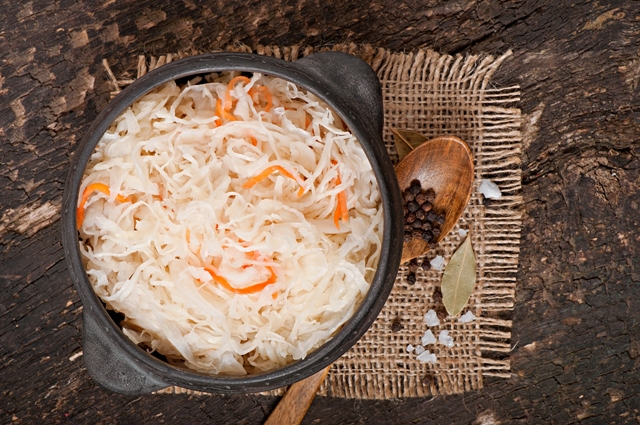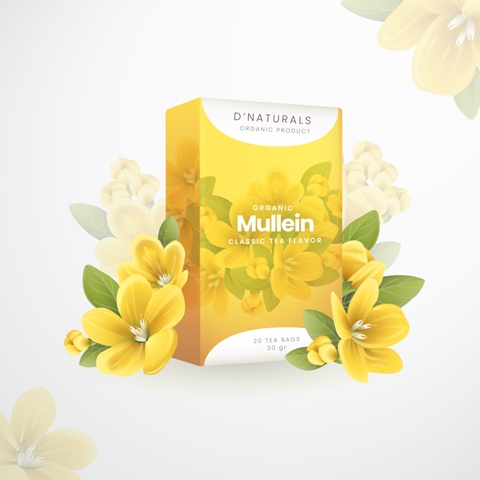Hibiscus tea is a nutritious herbal tea that offers various health benefits. Basically most of the people are familiar with the flower of hibiscus plant but other parts of the plant are also used for various medicinal purposes.
General information regarding hibiscus tea
- It has been traditionally used in Africa to decrease body temperature, for reducing the prevalence of cardiovascular diseases and for soothing sore throat
- It has been widely used in Iran too, as an imperative remedial action for hypertension
- Recently it becomes very popular for its cholesterol lowering activity
- It has a tart flavor
- Dried calyx (a part of hibiscus plant) is used to prepare hibiscus tea
- Whereas hibiscus plant can also be used for preparing various other drinks, which include, Sudan tea, sour tea, Lo-Shen, Karkade, red sorrel, agua de Jamaica
Nutritional profile
- It contains desirable amount of carbohydrates but does not contain enough fibre
- It does not contain any protein or fat
- It contains enough moisture
-
 It is packed with various important micronutrients, which include vitamin C, Vitamin B1, B2, B3, B9, choline, calcium, phosphorus, iron, potassium, sodium, zinc, magnesium and manganese
It is packed with various important micronutrients, which include vitamin C, Vitamin B1, B2, B3, B9, choline, calcium, phosphorus, iron, potassium, sodium, zinc, magnesium and manganese
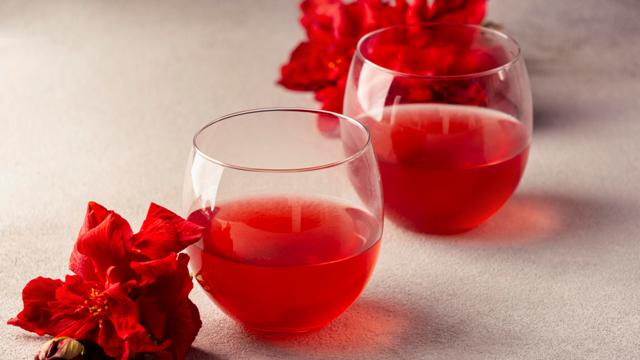
Types
It is widely available in market in various forms, which include –
- Ready-to-drink tea
- Liquid extract
- Single tea bags
- Encapsulated powder
- Loose flower petals
How hibiscus tea is prepared?
It can be easily prepared at home. Below points will discuss about the method of preparing hibiscus tea -
- At first water should be boiled in a pot
- Then 2 tsp of dried hibiscus flowers should be added to it
- After that it should be poured into a tea pot
- You can add a teabag to the concoction if you want to add caffeine to your tea. It is optional, absolutely depends on personal choice
- Depending on your choice you can also add sugar, mint, ginger, cinnamon stick and clove
- Then it should be allowed to steep for about 5 minutes
- Finally the tea should be strained into the cup through metal strainer
Biological activity
Antioxidant activity
- It exerts powerful antioxidant activity that helps to prevent oxidative damages of the body by preventing the building up of free radicals within body
- It is closely related with promoting the synthesis of antioxidant enzymes, which are responsible for neutralizing free radicals
- It helps to protect the body from the harmful effects of reactive oxygen species as well
- Its consumption is extremely useful for preventing oxidative stress, which ultimately helps in reducing the prevalence of various chronic diseases and promotes well being

Hypotensive activity
- It is very popular for its hypotensive activity
- It plays vital role in decreasing both systolic and diastolic pressure
- Its potassium content is considered as one of the most important micronutrients that help in preventing hypertension
- It is also associated with promoting vaso-dilation that is also responsible for decreasing high blood pressure
- Whereas individual who consume hydrochlorothiazide (a type of diuretic drug) should avoid its consumption as it may interfere with the drug
Anti-carcinogenic activity
- It is packed with polyphenols, which are accountable for exhibiting powerful anti-carcinogenic activity that helps in hindering the growth of malignant cells within body and reduces the prevalence of carcinoma
- Its consumption is extremely effective for decreasing the invasiveness of mouth and plasma cell cancers
- Consumption of its extract plays significant role in preventing the metastasis of prostate cancer cells
- It also helps in decreasing the prevalence of stomach cancer

Anti-inflammatory activity
- It contains various important plant components that exert potent anti-inflammatory activity, which helps to prevent inflammation by decreasing the concentration of inflammatory mediators in body
- It helps to improve the symptoms of arthritis too, as it is related with preventing joint swelling
Hypolipidemic activity
- Its hypolipidemic activity makes it a supper food
- It subsequently decreases the concentration of LDL and triglyceride in body whereas it helps to improve the HDL level thus its consumption is thought to be extremely effective for decreasing the prevalence of metabolic syndrome
Antimicrobial activity
- It helps in suppressing the growth microbes within host whereas it may also able to kill microbial cells due to its antimicrobial activity thus its consumption is thought to be very effective for decreasing the susceptibility of developing infectious diseases
- It is extremely effective against E. coli
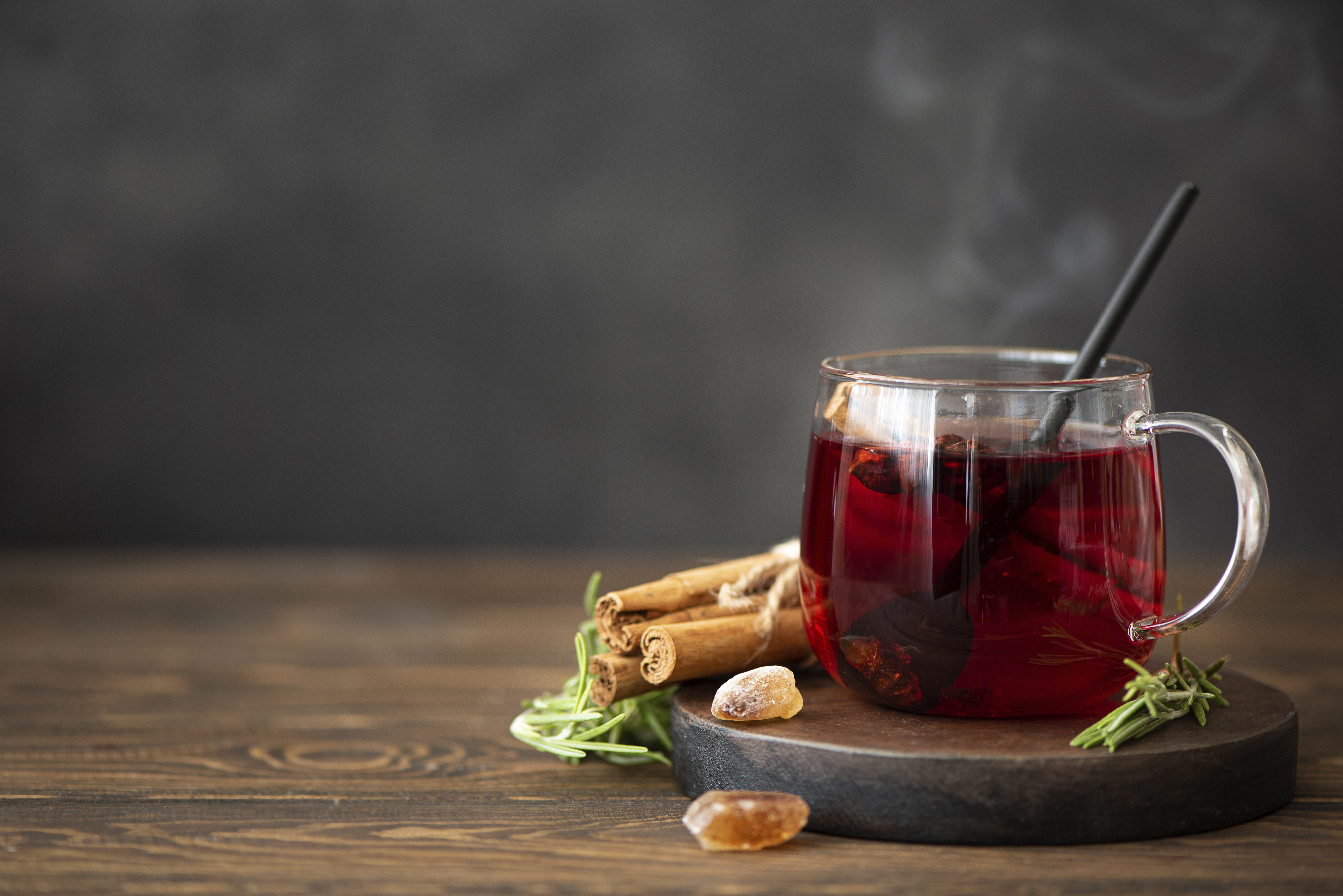
Health benefits
Role on immunity
- It contains various immune boosting nutrients that play vital role in improving the overall immunity of the body
- Its Vitamin C content is accountable for enhancing the synthesis of WBC that helps to make the body able to fight against infections
- It is also associated with promoting the function of immune cells by preventing their oxidative damages as a result enhances the resistance power of body and decreases the susceptibility of becoming ill

Role on hepatic health
- Its consumption is awfully useful for promoting hepatic health and helps to keep the liver working efficiently
- It helps in reducing the prevalence of fatty infiltration of liver and helps to improve the symptoms liver steatosis
- It is also associated with increasing the level of various drug-detoxifying enzymes within the liver thus helps to promote the detoxification process as well
- Moreover its consumption is really very effective for decreasing the markers of hepatic damage
Role on weight management
- It plays significant role in boosting up the metabolism of the body, which ultimately facilitates weight reduction
- Its cholesterol lowering property is also very effective for preventing the prevalence of visceral obesity
Role on digestive health
- It plays imperative role in improving digestion
- It is also associated with promoting bowel movement that helps in promoting regularity and improves the symptoms of constipation
Role on mental health
- Its micronutrients and flavonoid components are accountable for exhibiting anti-depressant activity, which help to prevent depression
- It is also related with preventing anxiety
- It helps to calm down the nervous system too and helps to provide a relaxed sensation in the mind as well as in the body, which plays vital role in reducing the stress level and improves mood

Role on cardiac health
- Its consumption is extremely helpful for reducing the susceptibility of developing cardio vascular diseases
- Its micronutrients and polyphenolic components are considered as cardio-protective nutrients, which play vital role in boosting up the cardiac health and functionality
- Its cholesterol lowering activity is responsible for decreasing the prevalence of atherosclerosis and coronary artery diseases
- It is also very effective for decreasing the susceptibility of heart attacks and strokes
Other health benefits
- It helps in decreasing the prevalence of anemia as its Vitamin C content helps in iron absorption
- It plays significant role in promoting the synthesis of collagen in body that helps in improving the health and functionality of connective tissue
- Its consumption is also very effective for maintaining a healthy cartilage, bone and teeth
- It also helps in promoting wound healing by stimulating tissue growth and repair
Risk factors
- It may develop allergic reactions within body thus individuals who are sensitive to hibiscus flower should avoid the consumption of hibiscus tea
- Pregnant women should also avoid its consumption due to its emmenagogue effects
- Its over consumption may also cause dizziness

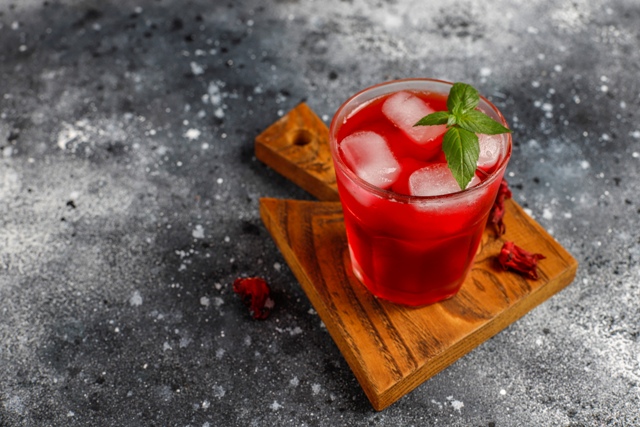
Source:
CUPS, A., Hibiscus Tea May Be Good for Hypertension.
Frank, T., Netzel, G., Kammerer, D.R., Carle, R., Kler, A., Kriesl, E., Bitsch, I., Bitsch, R. and Netzel, M., 2012. Consumption of Hibiscus sabdariffa L. aqueous extract and its impact on systemic antioxidant potential in healthy subjects. Journal of the Science of Food and Agriculture, 92(10), pp.2207-2218.
Lu, B., Li, M. and Yin, R., 2016. Phytochemical content, health benefits, and toxicology of common edible flowers: a review (2000–2015). Critical Reviews in Food Science and Nutrition, 56(sup1), pp.S130-S148.
McKay, D.L., Chen, C.O., Saltzman, E. and Blumberg, J.B., 2010. Hibiscus sabdariffa L. tea (tisane) lowers blood pressure in prehypertensive and mildly hypertensive adults. The Journal of nutrition, 140(2), pp.298-303.
Troderman, J., Health Benefits of Hibiscus Tea and How to Make It.
